Tech giants like Facebook and YouTube compete directly with TikTok and for years, tensions have been growing between them. In April, thanks to Coronavirus lockdown, TikTok amassed over 2-billion downloads on Google Play Store and Apple’s App Store, largely because people “trapped” at home wanted to keep themselves entertained.
It was only 5 months earlier that TikTok surpassed 1.5-billion downloads. It means on average, there were 100-million downloads every month leading to the 2-billion milestone. It became the first app after WhatsApp, Instagram and Messenger break past the 2-billion downloads since 2014. As TikTok’s popularity skyrockets, so does its revenue – and of course, problems.
Users spent a whopping US$456.7 million on TikTok when it hit a 2-million downloads in April, up from US$175 million just 5 months earlier (when it hit 1.5-billion downloads). It was a goldmine. The owner of TikTok made a net profit of US$3 billion in 2019 alone. But there’s one problem. TikTok is not owned by an American company, but a Chinese company – ByteDance.
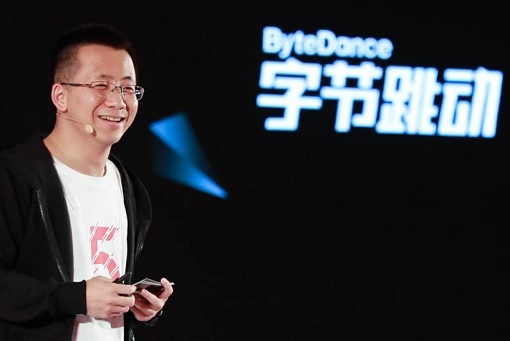
Founded in 2012 by entrepreneur Zhang Yiming, ByteDance reportedly has a private valuation of between US$105 billion and US$110 billion, which would make it the most valuable start-up in the world. One Bloomberg analyst even speculated that it could be worth up to US$180 billion in an IPO (initial public offering). TikTok’s popularity came with a price though.
The U.S. government under Trump administration was not impressed with the Beijing-based app. In fact, after the US-China trade war, which saw Trump’s failure to bring the Chinese to its knees, it’s safe to say that any successful technology company or app originated from China must be stopped at all cost under the pretext of a “threat to the U.S. national security“.
Like Huawei’s 5G technology, which Washington said could be used by Beijing for espionage, TikTok similarly has been accused by the U.S. as a dangerous Trojan horse for Chinese Communist Party espionage. Amusingly, like Huawei, the U.S. government could not prove that an app used widely for dance challenges and lip-syncing is really a spy tool.
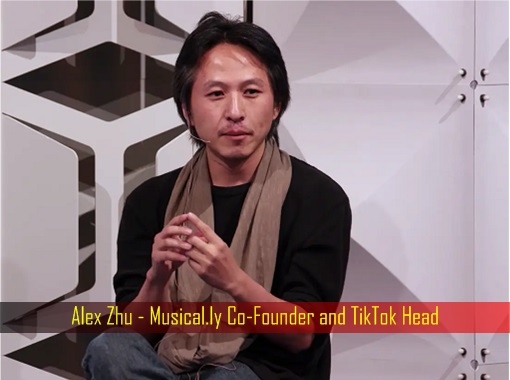
Last November, the U.S. government launched a national security review of ByteDance’s acquisition of Musical.ly, a social media service founded by longtime friends Alex Zhu and Luyu Yang in Shanghai, China. ByteDance acquired Musical.ly Inc. on November 9, 2017 for US$1 billion, and merged it into TikTok on August 2, 2018. Musical.ly Inc. then changed its name to TikTok Inc., and the rest is history.
The U.S. government was not only worried about how user data are stored, but was also concerned that the Chinese company may be censoring politically sensitive content – suggesting that it has been all about politics from the beginning. Last Friday, aboard the Air Force One, President Trump declared that TikTok would be banned in the United States.
Coincidentally, when it appeared that TikTok would suffer the same fate as Huawei in the U.S., Microsoft suddenly emerged and announced it was exploring an acquisition for TikTok’s American business. After a phone conversation between Microsoft CEO Satya Nadella and President Trump, the “American company” was given the green light to reach a deal by September 15.
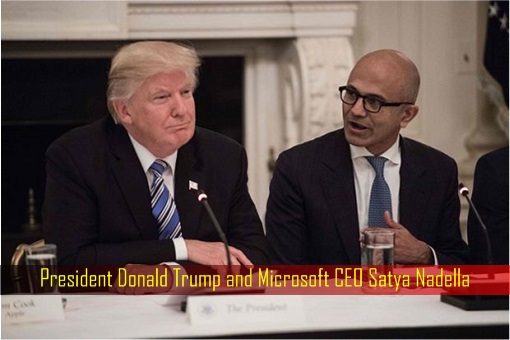
Immediately, Chinese media slammed the Americans, calling the “forced sale” of TikTok as “theft” and labelled the U.S. as nothing but a “rogue country”. Hu Xijin, the outspoken editor-in-chief of the state-backed Global Times, called the move an “open robbery”. China Daily, on the other hand, mocked the U.S. for “stealing Chinese technology”.
Global Times even ran a headline that insults the U.S. – “Banning TikTok reflects Washington’s cowardice.” The Chinese tabloid told readers why Trump decided to ban the TikTok app, but at the same time shamelessly allows Microsoft to acquire the popular Chinese app – because TikTok is a threat to American technology firms (just like Huawei).
For as long as one can remember, Trump has used allegations of Chinese state-sponsored “intellectual property (IP) theft” as justification to trigger a prolonged trade war between both countries. But his latest stunt of using the power under CFIUS (Committee on Foreign Investment in the United States) to force ByteDance to sell its U.S. business is worse than “IP theft”.
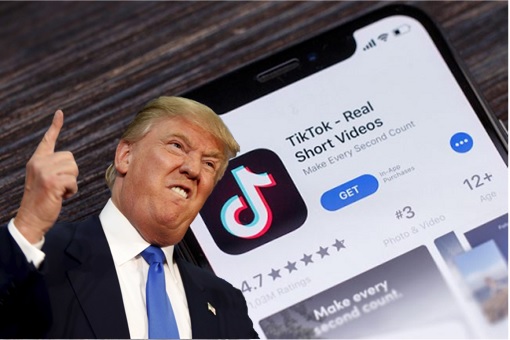
Exactly what does Microsoft plan to do with the TikTok in America, where it has 100 million users, is beyond comprehension. The scope of the purchase includes TikTok operations in the U.S., Canada, Australia and New Zealand. So far, Microsoft has assured users that information collected from TikTok would be kept in the United States.
But it won’t be a walk in the park for Microsoft. The plan to split TikTok so that Microsoft controls the U.S., Canada, Australia and New Zealand operations is a tricky business because Microsoft may need to rebuild new infrastructure such as network and servers, not to mention databases and separation of users, all of which could break the algorithm and ecosystem of TikTok.
Interestingly, Microsoft is one of several American technology companies that helped China originally build a firewall used to surveil, track and monitor Chinese people. The presence of Microsoft in China since 1992 also saw its search engine Bing, social network LinkedIn and Skype allowed to operate in the mainland. So why should the U.S. government trust Microsoft?
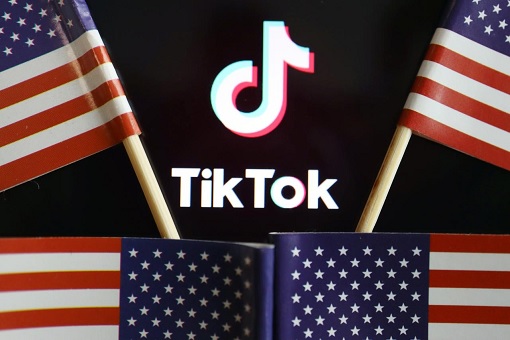
Not only Trump entertains Microsoft’s request to purchase TikTok, the president has the cheek to demand a cut – “key money” – of the TikTok-Microsoft deal. The demand for payment to the U.S. Treasury would be highly inappropriate. Nicholas Klein, a lawyer at DLA Piper, said generally “the government doesn’t have the authority to take a cut of a private deal”.
Charlotte Jee, a reporter at MIT Technology Review, said Trump’s request for money from the deal, as if it is a real estate deal, demonstrates Mafia-like behaviour. The very fact that the U.S. president has tried to solicit “commission” from a private deal is the clearest proof that the crackdown on TikTok has nothing to do with national security at all.
So what were the real reasons Donald Trump wanted to kill an entertainment app like TikTok? The answer can probably be found with “Generation-Z”. American teenagers love TikTok, so much so that they believed the primary reason Trump wants TikTok kicked out of the American soil is because he can’t stand comedian Sarah Cooper.
How to tick tack pic.twitter.com/1Mn8nk363f
— Sarah Cooper (@sarahcpr) July 31, 2020
For months, Sarah Cooper – a comedian who lips syncs to Trump’s speeches on TikTok – has gone massively viral. She has more than half a million followers on TikTok thanks to videos showing her lip-syncing the president’s speeches and adding her own context to hilarious effect. But Cooper is not the only one who has gotten under Trump’s skin.
Trump’s threat to shut down TikTok – coincidentally – also comes a month after a prank organized mainly through TikTok saw the president humiliated in a campaign rally in Tulsa, Oklahoma. In the days leading up to the June 20th rally, President Trump bragged that a jaw-dropping a.
However, just over 6,000 people users sabotaged the rally by reserving thousands of tickets they never planned to use, and encouraged their friends to do the same. As Trump found out the hard way, TikTok isn’t just an app for silly videos. American teens use it to express themselves and connect with others.
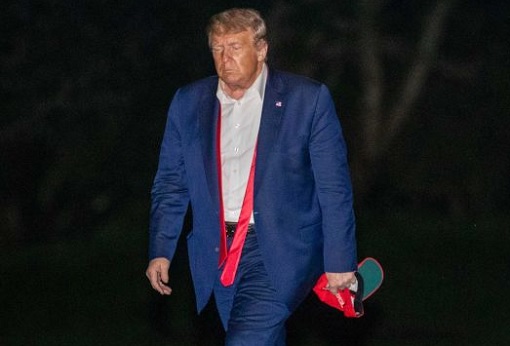
Obviously, the narcissist Donald Trump would not allow some mean girls like Sarah Cooper continue ridiculing him. More importantly, the president wanted to send a message to American teenagers by threatening to shut down the platform, if they don’t behave. If you ask the Gen-Z, they would tell you that Trump wants to restrict young people’s free speech.
Trump doesn’t want to ban TikTok because of supposed Chinese access to American user data. If that is true, there would be no negotiation and TikTok would be banned immediately. Trump wants to ban TikTok because it threatens his plan to get re-elected in November. Had TikTok been used positively to help his re-election, Trump would definitely leave TikTok alone.
Other Articles That May Interest You …
- Only 6,000 Showed Up – How TikTok & K-Pop Humiliated Trump, Tricking His Campaign About 1 Million Tickets
- Second Wave Of Covid-19 Has Begun In The U.S. – But Not Everyone Cares, And They Would Pay The Price
- Trump To Cut Off Chip Supplies To Huawei – But The Chinese Tech Giant Has Begun Making Phones With Local Chipmaker
- China No Longer Needs U.S. Parts – Huawei Mate 30 Contains Zero American Chips
- Huawei’s Market Share Hits Record 38% In China – All Competitors’ Share Including Apple Plunges
- From Trade War To Tech War – After 5G Technology, The US Aims To Cripple China’s Artificial Intelligence
- As Huawei Hits $100 Billion Revenue, Chairman Said The U.S. Has “Loser’s Attitude” & “Table Manners” Problem
- “You Cannot Crush Us” – Huawei Founder Warned About Shifting Investment From The U.S. To U.K.
- Huawei Strikes Back – U.S. Fears Of Being Left Behind, Fails To Hack Into Huawei To Spy
- China Invasion – Top 10 American Iconic Brands Now Owned By Chinese

|
|
August 5th, 2020 by financetwitter
|


|

|

|

|

|

|




























Comments
Add your comment now.
Leave a Reply